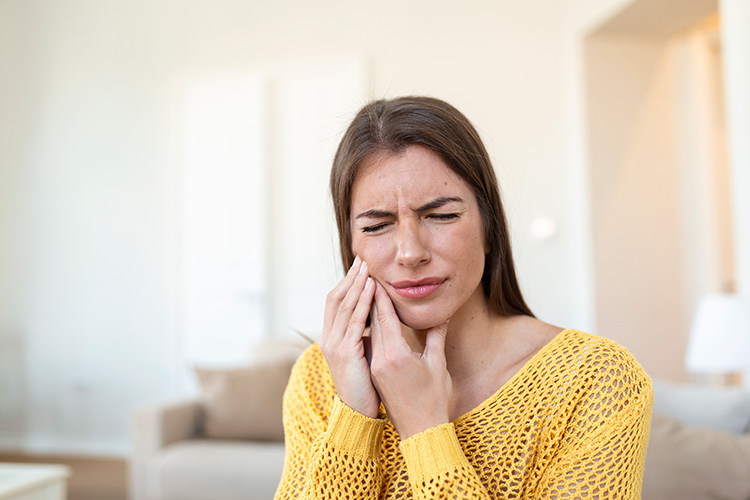Dental fillings are a common dental procedure used to treat cavities and restore teeth. However, sometimes, dental fillings can cause prolonged soreness, which can be uncomfortable and concerning. In this blog post, we'll discuss what you need to know about prolonged soreness after a dental filling, including the common causes, how to ease the pain, and when to see your dentist.
Common Causes of Prolonged Soreness After a Dental Filling:
Tooth pain after filling or dental filling soreness is a common occurrence, and there can be several reasons for it. One of the most common causes is that the filling is too high. If the filling is too high, it can cause your teeth to hit each other unevenly, leading to soreness and discomfort.
Another cause of prolonged soreness after a dental filling is tooth-filling sensitivity. Tooth sensitivity after a filling is a common occurrence and can happen because of several reasons, including the type of filling used, the size of the filling, and how close the filling is to the nerve of the tooth. This sensitivity can be mild to severe, and the pain can last for a few days to a few weeks.
Other reasons for prolonged soreness after a dental filling can be an allergic reaction to the filling material, decay in the tooth, or a cracked tooth.
How to Ease the Pain of Prolonged Soreness After a Dental Filling:
If you are experiencing discomfort after a dental filling, there are several ways to ease the pain. The first and foremost step is to take over-the-counter pain medication, such as acetaminophen or ibuprofen. You can also try using a warm compress or ice pack on the affected area, which can help reduce inflammation and ease pain.
Another effective way to ease the pain of prolonged soreness after a dental filling is to avoid hot and cold foods and drinks. Foods and drinks that are too hot or too cold can trigger sensitivity and increase discomfort. Instead, opt for room-temperature foods and drinks until your tooth is no longer sensitive.
When Should I See the Dentist if I'm Experiencing Prolonged Soreness:
If you are experiencing prolonged soreness after a dental filling, it is essential to monitor your symptoms and see your dentist if the pain persists or worsens. You should contact your dentist if the pain lasts for more than a week or is severe enough to disrupt your daily routine. Your dentist can examine your teeth and determine the cause of the pain and provide appropriate treatment.
Conclusion:
Dental fillings are a common dental procedure used to treat cavities and restore teeth. While dental fillings are usually safe and effective, they can sometimes cause prolonged soreness and discomfort. If you are experiencing prolonged soreness after a dental filling, it is essential to understand the common causes and ways to ease the pain. Remember to monitor your symptoms and seek help from your dentist if the pain persists or worsens.
At IQ Dental, our team of experienced dental professionals is committed to providing high-quality dental care to help you maintain optimal oral health. Contact us today to schedule an appointment.







